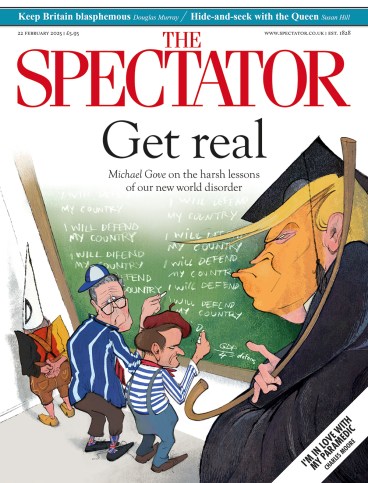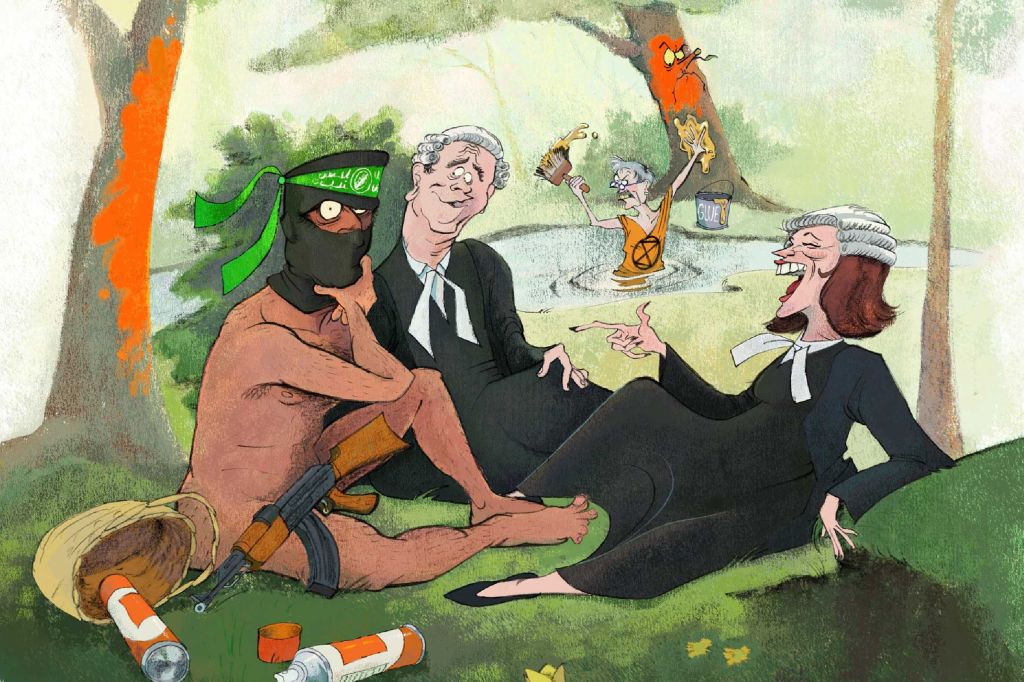
When Howard Amos first came to Russia, in 2007, it was a country you visited with interest, even enthusiasm. Modernisation, potentially a progressive development, was on the cards; America was getting ready to ‘reset’ US-Russian relations; foreigners were able to volunteer at Russian orphanages. That was what Amos did, working with disadvantaged children in Pskov Region. In the 2010s, he returned to Russia as a journalist and reported from places high and low. He draws on his experiences in this book’s 17 essays, centred on topics ranging from politics to poetry, religion to rural affairs.
Inevitably, war is a recurring theme. One of Amos’s interviewees, Sergei, works for a German organisation set up to give fallen soldiers marked graves. His job is to exhume and rebury the remains of those killed near Pskov in the second world war. In the 1980s, as a young man, Sergei volunteered to fight in Afghanistan. Now that Russia is at war again, his support for the invasion comes as no surprise: ‘We beat them in the past, we are beating them now and will beat them in the future.’ He is referring to the tanks supplied by Germany to Ukraine, but it’s easy to imagine ‘them’ being extended to the rest of the world.
Another chapter sketches the history of the flax industry, once thriving, now extinct. Its workers relied on the state until the end. It came in the early 1990s, when ‘shock therapy’, a measure expected to help Russia transition from a planned to a market economy, brought ‘immense human suffering in the form of hyperinflation, unpaid salaries, job losses and uncertainty’. A former director of a flax mill tells of its privatisation, from which he and his colleagues gained nothing except the money they got from selling the equipment for scrap. Of people’s feelings in those days, he says: ‘There was no anger.’
Svetlana is not angry either, even though her husband, Mikhail, was killed in Ukraine, leaving her with two young children. Unlike many, Mikhail didn’t enlist for ideological or financial reasons. What motivated him was an obsession with ‘guns and explosions’, part of the traditional version of masculinity. ‘It seems that was his fate,’ Svetlana says of his death. No one knows what Russian soldiers are fighting for in Ukraine; some say it’s ‘just for kicks’, and that ‘the second world war was a better war than what they’ve got going on’.
In a psychiatric hospital, a doctor speaks nostalgically about the Soviet past. Russia’s institutions – orphanages, prisons, nurseries – all evoke ‘the same helplessness in the face of arbitrarily exercised power’. Amos draws parallels between his interviewee and the doctor protagonist of ‘Ward No. 6’, a short story by Anton Chekhov; what also comes to mind is Joseph Brodsky’s line: ‘A school is a factory is a poem is a prison is academia is boredom, with flashes of panic.’
Literary subjects crop up in many of the encounters described. A visit to Pushkin Hills – a vast museum attracting both reverential admirers and ‘hordes of drunks who couldn’t care less about Pushkin’ – calls forth reflections on the poet being appropriated as an ‘ideological prop’ by different regimes. A trek across ‘back country’ takes Amos past Dostoevsky’s house in Staraya Russa, before bringing him to abandoned villages, war memorials and dilapidated monasteries that are being rebuilt with little regard for heritage. The people he meets along the way – a retired geologist praying in a roofless church, a priest who refers to coronavirus as the plague, drunks taking potshots at a broken lamp post – are an equally desolate sight.
The provinces, with their bleak ruins and marginalised characters, were prominent in the work of Dmitry Markov (Dima), a photographer who ‘imbued them with beauty, glamour and even eroticism’. During their last conversation, Amos asked Dima why his compatriots were so willing to fight in Ukraine. ‘When you don’t value your own fucking life,’ Dima said, ‘of course you’ll fucking go off to war without a second thought.’ Last year he died of overdose, aged 41, ‘leaving little else but darkness’.
No book about Russia would be complete without religion. One illuminating chapter, beginning with a charismatic figure on a motorbike, tells the story of two brothers: the eccentric Father Raphael and Alexander Ogorodnikov, a dissident tortured in Soviet prisons. It ends with images of ‘the new, thrusting Orthodox Church’ that has long been in bed with the government. This unholy union is behind the state of things in Russia, where the powers that be use ‘an acute social desire for an accounting of the past that can be a source of pride’ to falsify history in ways that suit them.
Amos’s well-researched, insightful book portrays a nation sweeping its past under the carpet as it sways between pitying itself and pitting itself against everyone else. Rather than making it a model of capitalist prosperity, modernisation ‘seemed to send the country spinning into the Stone Age’. The hopeful Russia of two decades ago is no more.







Comments